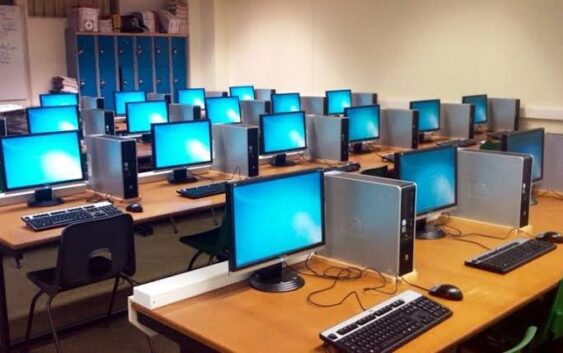By Michelle Mulingo
Mnqobi Ndiweni, 20, of Mpopoma suburb never imagined being stuck at home due to failure to secure employment, a lived reality of thousands of other youths of his age.
After attaining 10 points at A’ Level, Ndiweni looked forward to proceeding to university but that was not to be.
Efforts to find a job have not been rewarding in a country with an unemployment rate of 20% according to the Zimbabwe National Statistics Agency (ZIMSTAT).
Trade unions have disputed the figure and argue that it hovers between 70% and 80%.
“If our youth centres were functional, I would have opted to do some course while i am still job hunting. The challenge is that most of the courses offered at some of the youth centres are no longer appealing to young people,” says Ndiweni.
He is one of Bulawayo’s youths who are suggesting that youth centres be remodelled into information communication technology (ICT) hubs, a development they believe will cater for their needs.
Bulawayo has a total of 15 youth centres which have the potential of changing the lives of the youths in the city.
“Having these ICT hubs closer to home will ensure that there will be a decrease in drug and substance abuse as these youths will be empowered with computer skills and can search for opportunities online to better their lives,” said Debra Dlamini, from Nkulumane 5.
“Gone are the days when woodwork, needlework, drama and dance were appealing to young people,” added Dlamini.
Studies on countries that have fully embraced and invested in ICTs have recorded a decline in youth unemployment, drug and substance abuse cases and suicide cases.
This comes as the ICTs ministry was mandated by President Emmerson Mnangagwa to work on the SMART Zimbabwe 2030 Master Plan, which seeks to exploit the potential of ICTs in achieving an upper-middle-income economy by 2030.
This vision is predicated on, among others, building on the achievements of the Zimbabwe National Policy on ICTs of 2016 to 2020, which further strengthens Zimbabwe’s economic base and improves its economic environment for accelerated growth towards achieving a digital government, a digital economy, and a digital society by 2030.
Descent Collins Bajila, a youth advocate says: “If only there was a political will amongst our duty bearers these youth centres are a perfect source in stopping idleness amongst the youths”.
“The government with the National Development Strategy 1 has pledged to ensure that everyone has access to the internet, this will help in fulfilling the Strategic Development Goals,” added Bajila.
Ward 9 Councilor Donaldson Mabutho said the Bulawayo City Council (BCC) was faced with financial constraints to upgrade the youth centres.
“As the city council, it is our wish that we revive these youth centres as they have the potential to curb drug and substance abuse, suicide and other social ills that affect the youth in our communities,” he said.
“However, at the moment the local authority’s coffers are dry; we have the refurbishment in the master plan but fall short on funding. We also wish to have mental health hubs in our locations so that our youths get treatment for mental health-related issues and these youth centres are a perfect place only if we get funding or donors to help us.”
However, youths have suggested that the local authority should find ways to fund the refurbishment of these youth centres outside set budgets as the facilities have the potential to make Bulawayo a drug free city.
“The available youth centres even if they are refurbished, the programs they offer no longer appeal to youths of nowadays who are technologically advanced hence there is need to change the outlook of these centres to match the youth’s demands.” Thando Gwinji, Director for Youth for Innovation Trust
“These demands can only be met if the local authority comes together with the government and other stakeholders. These stakeholders might include NGOs, well-wishers and the youths themselves; you will see they will not vandalize the structures as it is their own project.”
Bulawayo Progressive Residents’ Association (BPRA) secretary for administration, Thembelani Dube says for these youth centres to appeal to all youths they must be equipped with the internet.
“These youth centres should be turned into ICT hubs and in the process, they can be self-sustainable as they can be used as conference venues for NGOs and other like-minded organisations,” said Dube.
“Even those who are inclined to film, and theatre or dance can also use the same facility, it can capture everyone’s needs and produce its own money to sustain its activities.”

